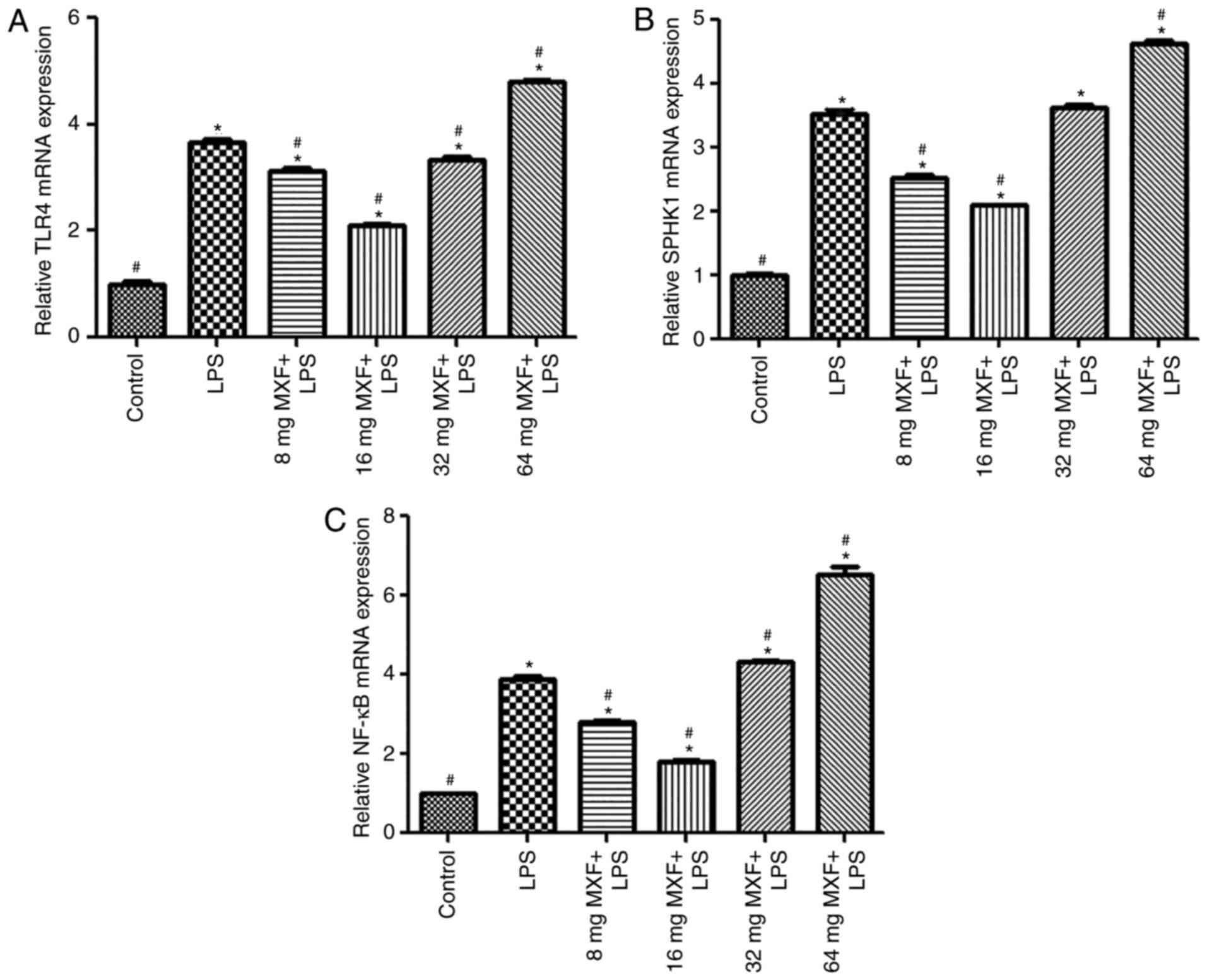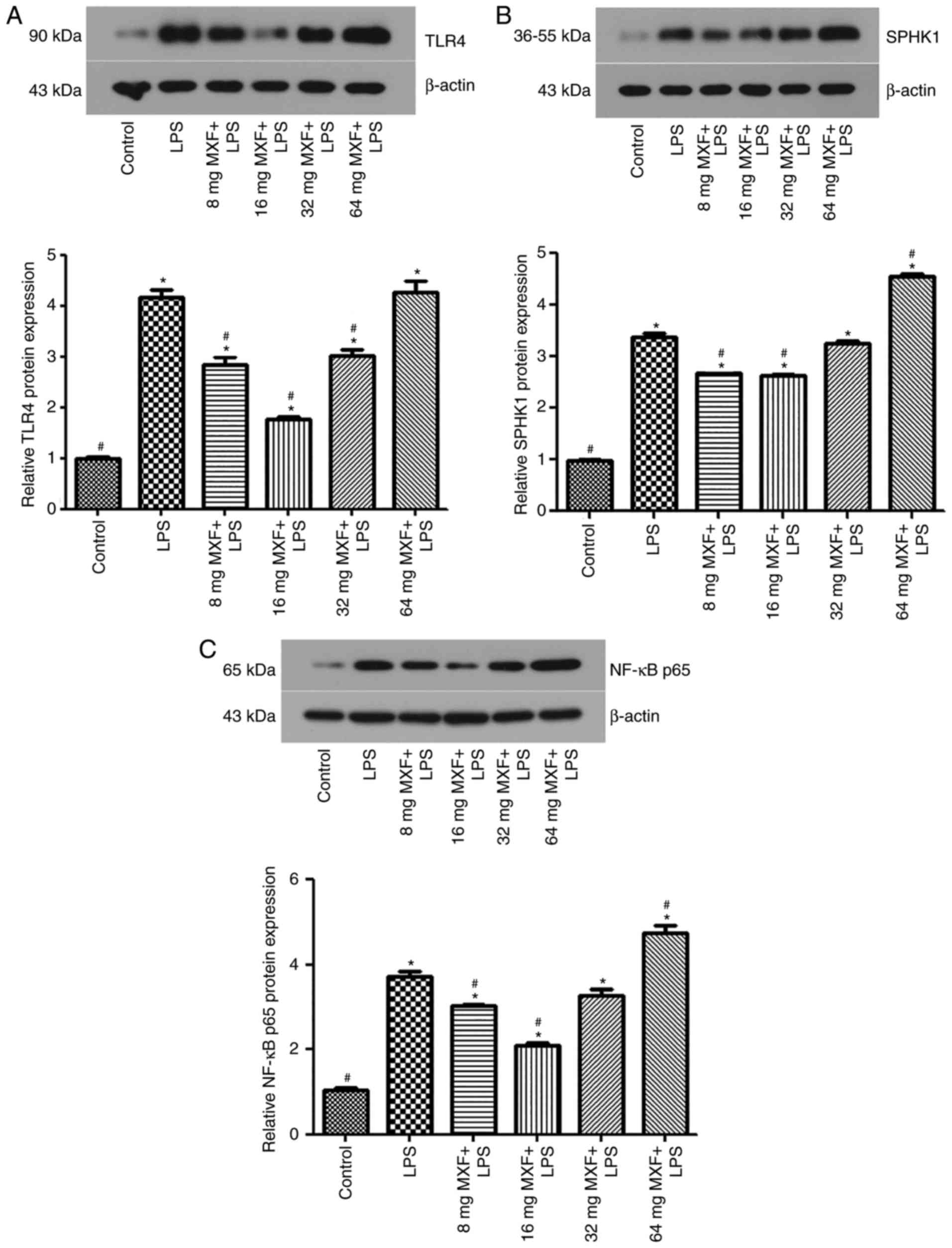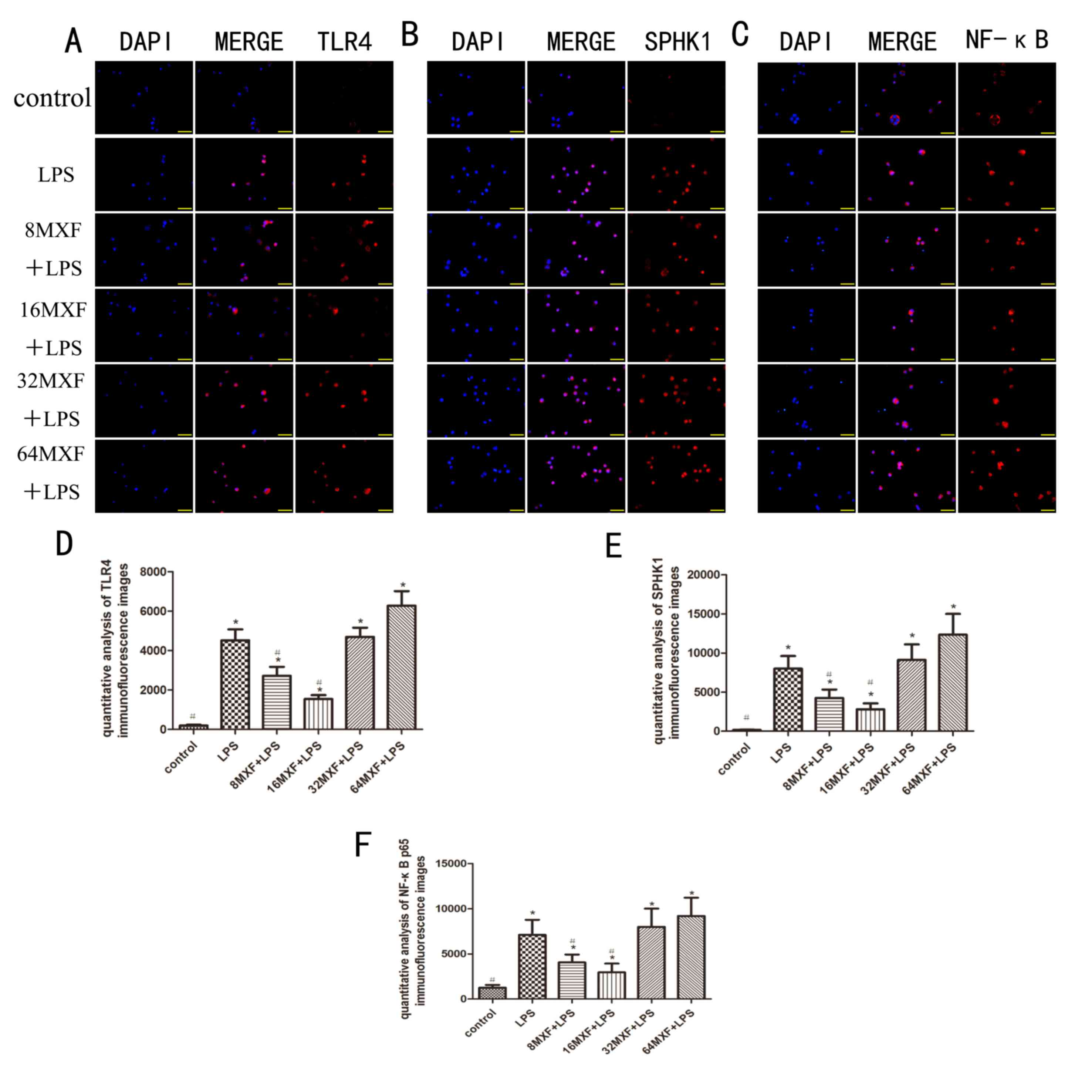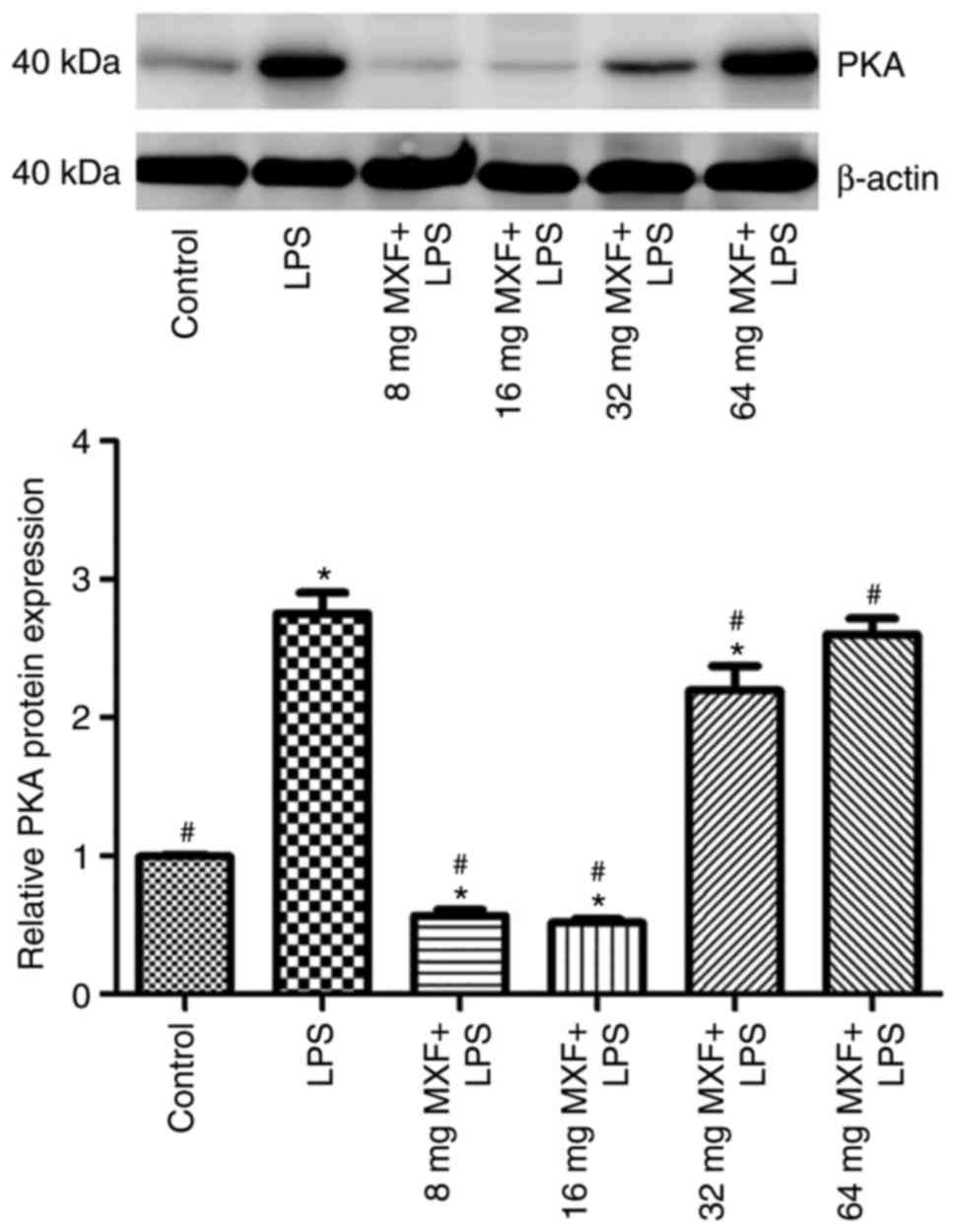|
1
|
Underhill DM and Ozinsky A: Phagocytosis
of microbes: Complexity in action. Annu Rev Immunol. 20:825–852.
2002. View Article : Google Scholar : PubMed/NCBI
|
|
2
|
Huang X, Venet F, Wang YL, Lepape A, Yuan
Z, Chen Y, Swan R, Kherouf H, Monneret G, Chung CS and Ayala A:
PD-1 expression by macrophages plays a pathologic role in altering
microbial clearance and the innate inflammatory response to sepsis.
Proc Natl Acad Sci USA. 106:6303–6308. 2009. View Article : Google Scholar : PubMed/NCBI
|
|
3
|
Munoz C, Carlet J, Fitting C, Misset B,
Blériot JP and Cavaillon JM: Dysregulation of in vitro cytokine
production by monocytes during sepsis. J Clin Invest. 88:1747–1754.
1991. View Article : Google Scholar : PubMed/NCBI
|
|
4
|
Ayala A and Chaudry IH: Immune dysfunction
in murine polymicrobial sepsis: Mediators, macrophages, lymphocytes
and apoptosis. Shock. 6 Suppl 1:S27–S38. 1996. View Article : Google Scholar : PubMed/NCBI
|
|
5
|
Wittebole X, Coyle SM, Kumar A, Goshima M,
Lowry SF and Calvano SE: Expression of tumour necrosis factor
receptor and Toll-like receptor 2 and 4 on peripheral blood
leucocytes of human volunteers after endotoxin challenge: A
comparison of flow cytometric light scatter and immunofluorescence
gating. Clin Exp Immunol. 141:99–106. 2005. View Article : Google Scholar : PubMed/NCBI
|
|
6
|
Kalis C, Kanzler B, Lembo A, Poltorak A,
Galanos C and Freudenberg MA: Toll-like receptor 4 expression
levels determine the degree of LPS-susceptibility in mice. Eur J
Immunol. 33:798–805. 2003. View Article : Google Scholar : PubMed/NCBI
|
|
7
|
Fitzgerald KA, Rowe DC and Golenbock DT:
Endotoxin recognition and signal transduction by the
TLR4/MD2-complex. Microbes Infect. 6:1361–1367. 2004. View Article : Google Scholar : PubMed/NCBI
|
|
8
|
Medzhitov R, Preston-Hurlburt P and
Janeway CA Jr: A human homologue of the drosophila toll protein
signals activation of adaptive immunity. Nature. 388:394–397. 1997.
View Article : Google Scholar : PubMed/NCBI
|
|
9
|
Poltorak A, He X, Smirnova I, Liu MY, Van
Huffel C, Du X, Birdwell D, Alejos E, Silva M, Galanos C, et al:
Defective LPS signaling in C3H/HeJ and C57BL/10ScCr mice: Mutations
in Tlr4 gene. Science. 282:2085–2088. 1998. View Article : Google Scholar : PubMed/NCBI
|
|
10
|
Hoshino K, Takeuchi O, Kawai T, Sanjo H,
Ogawa T, Takeda Y, Takeda K and Akira S: Cutting edge: Toll-like
receptor 4 (TLR4)-deficient mice are hyporesponsive to
lipopolysaccharide: Evidence for TLR4 as the Lps gene product. J
Immunol. 162:3749–3752. 1999.PubMed/NCBI
|
|
11
|
Xu H, Su Z, Wu J, Yang M, Penninger JM,
Martin CM, Kvietys PR and Rui T: The alarmin cytokine, high
mobility group box 1, is produced by viable cardiomyocytes and
mediates the lipopolysaccharide-induced myocardial dysfunction via
a TLR4/phosphatidylinositol 3-kinase gamma pathway. J Immunol.
184:1492–1498. 2010. View Article : Google Scholar : PubMed/NCBI
|
|
12
|
Brubaker SW, Bonham KS, Zanoni I and Kagan
JC: Innate immune pattern recognition: A cell biological
perspective. Annu Rev Immunol. 33:257–290. 2015. View Article : Google Scholar : PubMed/NCBI
|
|
13
|
Feng Y, Gao J, Cui Y, Li M, Li R, Cui C
and Cui J: Neuroprotective effects of resatorvid against traumatic
brain injury in rat: Involvement of neuronal autophagy and TLR4
signaling pathway. Cell Mol Neurobiol. 37:155–168. 2017. View Article : Google Scholar : PubMed/NCBI
|
|
14
|
Spiegel S and Milstien S: The outs and the
ins of sphingosine-1-phosphate in immunity. Nat Rev Immunol.
11:403–415. 2011. View
Article : Google Scholar : PubMed/NCBI
|
|
15
|
Vyas V, Ashby CR Jr, Olgun NS, Sundaram S,
Salami O, Munnangi S, Pekson R, Mahajan P and Reznik SE: Inhibition
of sphingosine kinase prevents lipopolysaccharide-induced preterm
birth and suppresses proinflammatory responses in a murine model.
Am J Pathol. 185:862–869. 2015. View Article : Google Scholar : PubMed/NCBI
|
|
16
|
Matloubian M, Lo CG, Cinamon G, Lesneski
MJ, Xu Y, Brinkmann V, Allende ML, Proia RL and Cyster JG:
Lymphocyte egress from thymus and peripheral lymphoid organs is
dependent on S1P receptor 1. Nature. 427:355–360. 2004. View Article : Google Scholar : PubMed/NCBI
|
|
17
|
Tarrasón G, Aulí M, Mustafa S, Dolgachev
V, Domènech MT, Prats N, Domínguez M, López R, Aguilar N, Calbet M,
et al: The sphingosine-1-phosphate receptor-1 antagonist, W146,
causes early and short-lasting peripheral blood lymphopenia in
mice. Int Immunopharmacol. 11:1773–1779. 2011. View Article : Google Scholar : PubMed/NCBI
|
|
18
|
Fukuhara S, Simmons S, Kawamura S, Inoue
A, Orba Y, Tokudome T, Sunden Y, Arai Y, Moriwaki K, Ishida J, et
al: The sphingosine-1-phosphate transporter Spns2 expressed on
endothelial cells regulates lymphocyte trafficking in mice. J Clin
Invest. 122:1416–1426. 2012. View
Article : Google Scholar : PubMed/NCBI
|
|
19
|
Camaré C, Trayssac M, Garmy-Susini B,
Mucher E, Sabbadini R, Salvayre R and Negre-Salvayre A: Oxidized
LDL-induced angiogenesis involves sphingosine 1-phosphate:
Prevention by anti-S1P antibody. Br J Pharmacol. 172:106–118. 2015.
View Article : Google Scholar : PubMed/NCBI
|
|
20
|
Vettorazzi S, Bode C, Dejager L, Frappart
L, Shelest E, Klaßen C, Tasdogan A, Reichardt HM, Libert C,
Schneider M, et al: Glucocorticoids limit acute lung inflammation
in concert with inflammatory stimuli by induction of SphK1. Nat
Commun. 6:77962015. View Article : Google Scholar : PubMed/NCBI
|
|
21
|
Haruki T, Miyazaki D, Matsuura K, Terasaka
Y, Noguchi Y, Inoue Y and Yamagami S: Comparison of toxicities of
moxifloxacin, cefuroxime, and levofloxacin to corneal endothelial
cells in vitro. J Cataract Refract Surg. 40:1872–1878. 2014.
View Article : Google Scholar : PubMed/NCBI
|
|
22
|
Miravitlles M and Anzueto A: Moxifloxacin:
A respiratory fluoroquinolone. Expert Opin Pharmacother.
9:1755–1772. 2008. View Article : Google Scholar : PubMed/NCBI
|
|
23
|
Shukla P, Verma AK, Dwivedi P, Yadav A,
Gupta PK, Rath SK and Mishra PR: Moxifloxacin-loaded nanoemulsions
having tocopheryl succinate as the integral component improves
pharmacokinetics and enhances survival in E. coli-induced
complicated intra-abdominal infection. Mol Pharm. 11:4314–4326.
2014. View Article : Google Scholar : PubMed/NCBI
|
|
24
|
Blau H, Klein K, Shalit I, Halperin D and
Fabian I: Moxifloxacin but not ciprofloxacin or azithromycin
selectively inhibits IL-8, IL-6, ERK1/2, JNK, and NF-kappaB
activation in a cystic fibrosis epithelial cell line. Am J Physiol
Lung Cell Mol Physiol. 292:L343–L352. 2007. View Article : Google Scholar : PubMed/NCBI
|
|
25
|
Lan Q, Yin MZ and Li SP: Separation
cultivation and identification of rat peritoneal macrophagee. J
Wuhan Univ Technol. 31:40–42. 2009.
|
|
26
|
Livak KJ and Schmittgen TD: Analysis of
relative gene expression data using real-time quantitative PCR and
the 2(-Delta Delta C(T)) method. Methods. 25:402–408. 2001.
View Article : Google Scholar : PubMed/NCBI
|
|
27
|
Weiss T, Shalit I, Blau H, Werber S,
Halperin D, Levitov A and Fabian I: Anti-inflammatory effects of
moxifloxacin on activated human monocytic cells: Inhibition of
NF-kappaB and mitogen-activated protein kinase activation and of
synthesis of proinflammatory cytokines. Antimicrob Agents
Chemother. 48:1974–1982. 2004. View Article : Google Scholar : PubMed/NCBI
|
|
28
|
Kim A, Lim KS, Lee H, Chung H, Yoon SH, Yu
KS, Cho JY, Jang IJ and Chung JY: A thorough QT study to evaluate
the QTc prolongation potential of two neuropsychiatric drugs,
quetiapine and escitalopram, in healthy volunteers. Int Clin
Psychopharmacol. 31:210–217. 2016. View Article : Google Scholar : PubMed/NCBI
|
|
29
|
O'Neill LA, Kishton RJ and Rathmell J: A
guide to immunometabolism for immunologists. Nat Rev Immunol.
16:553–565. 2016. View Article : Google Scholar : PubMed/NCBI
|
|
30
|
Kopp F, Kupsch S and Schromm AB:
Lipopolysaccharide-binding protein is bound and internalized by
host cells and colocalizes with LPS in the cytoplasm: Implications
for a role of LBP in intracellular LPS-signaling. Biochim Biophys
Acta. 1863:660–672. 2016. View Article : Google Scholar : PubMed/NCBI
|
|
31
|
Pahwa R, Devaraj S and Jialal I: The
effect of the accessory proteins, soluble CD14 and
lipopolysaccharide-binding protein on Toll-like receptor 4 activity
in human monocytes and adipocytes. Int J Obes (Lond). 40:907–911.
2016. View Article : Google Scholar : PubMed/NCBI
|
|
32
|
Cardenas H, Arango D, Nicholas C, Duarte
S, Nuovo GJ, He W, Voss OH, Gonzalez-Mejia ME, Guttridge DC,
Grotewold E and Doseff AI: Dietary apigenin exerts
immune-regulatory activity in vivo by reducing NF-κB activity,
halting leukocyte infiltration and restoring normal metabolic
function. Int J Mol Sci. 17:3232016. View Article : Google Scholar : PubMed/NCBI
|
|
33
|
Lee AS, Jung YJ, Thanh TN, Lee S, Kim W,
Kang KP and Park SK: Paricalcitol attenuates
lipopolysaccharide-induced myocardial inflammation by regulating
the NF-κB signaling pathway. Int J Mol Med. 37:1023–1029. 2016.
View Article : Google Scholar : PubMed/NCBI
|
|
34
|
Frieri M, Kumar K and Boutin A: Review:
Immunology of sinusitis, trauma, asthma, and sepsis. Allergy Rhinol
(Providence). 6:205–214. 2015. View Article : Google Scholar : PubMed/NCBI
|
|
35
|
Zhao H, Zheng Q, Hu X, Shen H and Li F:
Betulin attenuates kidney injury in septic rats through inhibiting
TLR4/NF-κB signaling pathway. Life Sci. 144:185–193. 2016.
View Article : Google Scholar : PubMed/NCBI
|
|
36
|
Kim YS, Hwang JW, Jang JH, Son S, Seo IB,
Jeong JH, Kim EH, Moon SH, Jeon BT and Park PJ: Trapa japonica
pericarp extract reduces LPS-induced inflammation in macrophages
and acute lung injury in mice. Molecules. 21:3922016. View Article : Google Scholar : PubMed/NCBI
|
|
37
|
Sugiyama K, Muroi M, Kinoshita M, Hamada
O, Minai Y, Sugita-Konishi Y, Kamata Y and Tanamoto K: NF-κB
activation via MyD88-dependent Toll-like receptor signaling is
inhibited by trichothecene mycotoxin deoxynivalenol. J Toxicol Sci.
41:273–279. 2016. View Article : Google Scholar : PubMed/NCBI
|
|
38
|
van der Mark VA, Ghiboub M, Marsman C,
Zhao J, van Dijk R, Hiralall JK, Ho-Mok KS, Castricum Z, de Jonge
WJ, Oude Elferink RP and Paulusma CC: Phospholipid flippases
attenuate LPS-induced TLR4 signaling by mediating endocytic
retrieval of Toll-like receptor 4. Cell Mol Life Sci. 74:715–730.
2017. View Article : Google Scholar : PubMed/NCBI
|
|
39
|
Jurga AM, Rojewska E, Makuch W and Mika J:
Lipopolysaccharide from Rhodobacter sphaeroides (TLR4 antagonist)
attenuates hypersensitivity and modulates nociceptive factors.
Pharm Biol. 56:275–286. 2018. View Article : Google Scholar : PubMed/NCBI
|
|
40
|
Purswani MU, Eckert SJ, Arora HK and Noel
GJ: Effect of ciprofloxacin on lethal and sublethal challenge with
endotoxin and on early cytokine responses in a murine in vivo
model. J Antimicrob Chemother. 50:51–58. 2002. View Article : Google Scholar : PubMed/NCBI
|
|
41
|
Shalit I, Halperin D, Haite D, Levitov A,
Romano J, Osherov N and Fabian I: Anti-inflammatory effects of
moxifloxacin on IL-8, IL-1beta and TNF-alpha secretion and NFkappaB
and MAP-kinase activation in human monocytes stimulated with
Aspergillus fumigatus. J Antimicrob Chemother. 57:230–235. 2006.
View Article : Google Scholar : PubMed/NCBI
|
|
42
|
Zhang W, Su DH, Zhong HY and Jiang YS:
Blood drug concentration and pharmacokinetic analysis of
moxifloxacin hydrochloride tablets. Fujian Medical Journal.
3:68–71. 2013.
|
|
43
|
Wise R, Andrews JM, Marshall G and Hartman
G: Pharmacokinetics and inflammatory-fluid penetration of
moxifloxacin following oral or intravenous administration.
Antimicrob Agents Chemother. 43:1508–1510. 1999. View Article : Google Scholar : PubMed/NCBI
|
|
44
|
Lubasch A, Keller I, Borner K, Koeppe P
and Lode H: Comparative pharmacokinetics of ciprofloxacin,
gatifloxacin, grepafloxacin, levofloxacin, trovafloxacin, and
moxifloxacin after single oral administration in healthy
volunteers. Antimicrob Agents Chemother. 44:2600–2603. 2000.
View Article : Google Scholar : PubMed/NCBI
|
|
45
|
Bailly S, Fay M, Roche Y and
Gougerot-Pocidalo MA: Effects of quinolones on tumor necrosis
factor production by human monocytes. Int J Immunopharmacol.
12:31–36. 1990. View Article : Google Scholar : PubMed/NCBI
|
|
46
|
Houssaye S, Gutmann L and Varon E:
Topoisomerase mutations associated with in vitro selection of
resistance to moxifloxacin in Streptococcus pneumoniae. Antimicrob
Agents Chemother. 46:2712–2715. 2002. View Article : Google Scholar : PubMed/NCBI
|
|
47
|
Hait NC, Oskeritzian CA, Paugh SW,
Milstien S and Spiegel S: Sphingosine kinases, sphingosine
1-phosphate, apoptosis and diseases. Biochim Biophys Acta.
1758:2016–2026. 2006. View Article : Google Scholar : PubMed/NCBI
|
|
48
|
Xiong H, Wang J, Guan H, Wu J, Xu R, Wang
M, Rong X, Huang K, Huang J, Liao Q, et al: SphK1 confers
resistance to apoptosis in gastric cancer cells by downregulating
Bim via stimulating Akt/FoxO3a signaling. Oncol Rep. 32:1369–1373.
2014. View Article : Google Scholar : PubMed/NCBI
|
|
49
|
Huckle AW, Fairclough LC and Todd I:
Prophylactic antibiotic use in COPD and the potential
anti-inflammatory activities of antibiotics. Respir Care.
63:609–619. 2008. View Article : Google Scholar
|
|
50
|
Beisswenger C, Honecker A, Kamyschnikow A,
Bischoff M, Tschernig T and Bals R: Moxifloxacin modulates
inflammation during murine pneumonia. Respir Res.
15:822014.PubMed/NCBI
|
|
51
|
Chen TC and Chang SW: Moxifloxacin
modulated TGF-β1-related interleukin-12 secretion in corneal
fibroblasts. Invest Ophthalmol Vis Sci. 58:5692–5702. 2017.
View Article : Google Scholar : PubMed/NCBI
|
|
52
|
Uehara H, Das SK, Cho YK, Archer B and
Ambati BK: Comparison of the anti-angiogenic and anti-inflammatory
effects of two antibiotics: Clarithromycin versus moxifloxacin.
Curr Eye Res. 41:474–484. 2016.PubMed/NCBI
|



















